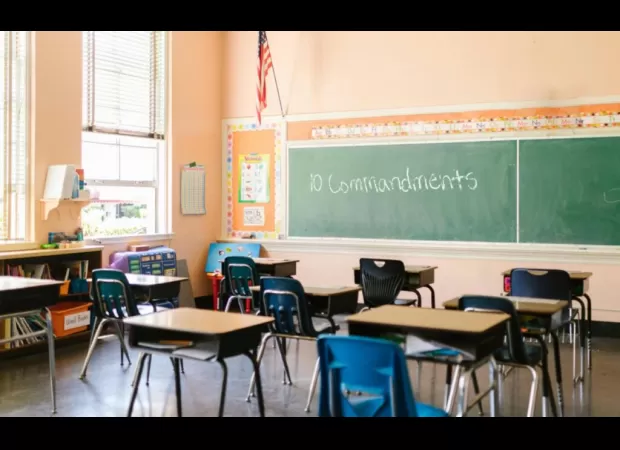Louisiana is the first state to mandate the presence of the Ten Commandments in public classrooms.
By 2025, all content must be in place and funded by donations instead of state funds.

Louisiana has made history as the first state to require the display of the Ten Commandments in every public school classroom. Republican Gov. Jeff Landry proudly signed this bill into law on June 19, also known as Juneteenth, a federal holiday. The legislation, carefully curated by the GOP, states that a poster-sized display of the Ten Commandments must be visible in all public classrooms, from kindergarten to state-funded universities. According to Landry, this move is a show of respect for the rule of law.
Landry explained, "If we want to uphold the rule of law, we must start with the original lawgiver, Moses, who received the commandments from God." The new law also includes a requirement for a four-paragraph "context statement" to accompany the posters, describing how the Ten Commandments have been a prominent part of American public education for nearly three centuries. The deadline for the implementation of these displays is the start of 2025, and they will be funded through donations rather than state funds.
However, not everyone is in support of this new law. Religious freedom and civil rights advocacy groups, including Americans United for Separation of Church and State, the American Civil Liberties Union, the American Civil Liberties Union of Louisiana, and the Freedom from Religion Foundation, have released a joint statement announcing their plans to file a lawsuit challenging the new law. They argue that it violates the separation of church and state and is unconstitutional.
According to these groups, "The First Amendment guarantees that individuals have the right to choose their own religious beliefs and practices without interference from the government. Politicians have no authority to impose their personal religious beliefs on students and families in public schools." They also emphasize that the government should not take sides in theological debates, as different religious denominations may have different interpretations of the Ten Commandments.
On the other hand, supporters of the legislation claim that it is not motivated by religious purposes but rather by the historical significance of the Ten Commandments. The language used in the law describes them as "foundational documents of our state and national government." In addition to the Ten Commandments, schools may also display other historical documents, such as the Mayflower Compact, the Declaration of Independence, and the Northwest Ordinance, although this is not required.
This is not the first time a state has faced controversy over religious displays in the classroom. In 1980, Kentucky lost a legal battle with the U.S. Supreme Court over a similar law. The high court ruled that the law was unconstitutional and violated the Establishment Clause of the U.S. Constitution, which states that Congress cannot make laws respecting an establishment of religion. The court concluded that the law served no secular purpose and was strictly motivated by religion.
As this mandate joins a growing list of laws implemented under conservative leadership, other states, including Texas, Oklahoma, and Utah, have proposed similar legislation. However, this move has sparked debates and raised concerns about the separation of church and state in public schools. In the midst of these discussions, Buddhist teacher Lama Rod Owens has called for the creation of "new saints" through his teachings, highlighting the importance of diversity and inclusivity in religious discussions.






